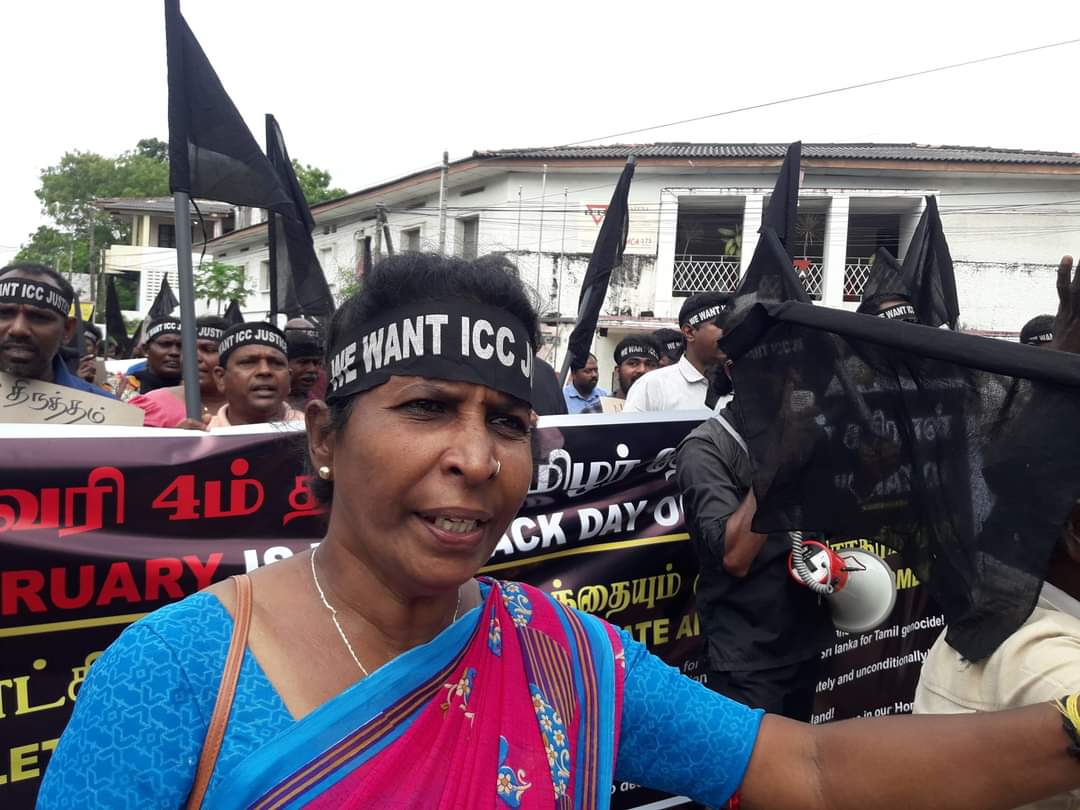
The 2024 Gwangju Prize for Human Rights by the South Korean May 18 Memorial Foundation has been awarded to Tamil women's rights activist Suganthini Mathiyamuthan Thangaras.
Suganthini, who is with the "Amara" organization , has been fighting for the rights and empowerment of war-affected women in Tamil Eelam against the repression and suffering caused by the Sri Lankan government and its security forces.
She is a survivor of sexual violence and of the 2009 Mullivaikkal genocide.
“She stands as a symbol of courage and hope for the numerous women who have lost everything to the military,” said the May 18 Foundation.
"We are confident that Suganthini’s activities are closely aligned with the spirit of May 18, and we strongly support and admire her endeavours to improve the human rights situation of Tamil women in Sri Lanka," said the 2024 Gwangju Prize for Human Rights Jury Committee chairperson, Song Seon-tae.
The committee further stressed that "we hope that the international community’s attention, cooperation, and solidarity will enable the truth about the atrocities perpetrated by the security forces in the Tamil Eelam region to be brought to light".
"My purpose of joining the liberation movement was two-fold," Suganthini says. "One is to liberate the Tamils from the Sinhala state oppression, and the other is to safeguard the Tamil women from sexual violence of the Sri Lankan military apparatus."
Suganthini says before the end of the armed conflict in 2009, the “security and dignity of women were ensured to a significant extent under the governance of the LTTE”.
"Women could travel safely even at midnight without fear," she said. "They were empowered to be self-sufficient and live independently. Measures were taken to support women's self-employment. provide self-defence training and raise awareness to overcome societal barriers stemming from patriarchal structures."
She says men and women were given equal opportunities in various sectors, leading to a gradual change in attitudes and patriarchal norms, almost eliminating them.
However, with the Sri Lankan military offensive that culminated in the 2009 genocide, things changed. “Instead, reports emerged of sexual violence, torture and rape, perpetrated not only against women, but also children and the elderly."
Suganthini recalls when she was arrested by the Sri Lankan military and taken to the Joseph camp, a notorious base in Vavuniya, where she was “subjected to horrific torture”.
"They stripped me and tortured me relentlessly," she said. "From the leader to the fellow military personnel. they raped me continuously leaving me utterly traumatised."
She recalls that on days when she was menstruating, she had no clothes to wear, adding to the humiliation and agony. "When I pleaded with the warden for clothing, they callously mocked me telling me to ask Prabhakaran for his underwear."
She says there were 11 other women in the same cell who were subjected to the same horrors, “all of us kept naked”.
"Tragically two of them died, and the rest of are too traumatised to speak about what they endured." She says that she the many other women are still struggling to recover from those experiences, many experiencing mental health issues because of the torture.
“Given the unbearable pain and suffering we endured, I can’t ask these women to relive their trauma by testifying as witnesses,” she commented. “We also heard screams from other cells in the Joesph camp, indicating that similar atrocities may have been taking place in the other cells too.”

It was these experiences that led Suganthini to found Amara, which helps women combat all forms of abuse with the ultimate goal of achieving freedom and empowerment for women.
Accompanying Suganthini on stage was Tamil politicians and rights activist Ananthy Sasitharan. Sasitharan outlined the history of Tamil genocide that has taken place on the island and the Tamil people’s struggle for self-determination.
“To this date we have not had any justice for this genocide,” she said, adding that it was still ongoing to this day.
“I am convinced that justice for Tamil issues cannot be realised without the empowerment and freedom of women,” she continued. “After the torture I faced and witnessed directly at the hands of the military, I couldn’t stay silent without taking action.”
Suganthini however said she had faced threats and intimidation from the Sri Lankan police and military over her work. “Whatever happens, I am committed to facing it head on and standing up for women until they receive the justice they deserve.”
